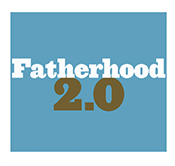
My wife told me that my son had been diagnosed with Autism over the phone. I was sitting in the abandoned guardhouse on the southern bank of the Euphrates River that served as the HQ for Special Operations Task Force West in Iraq.
It had been three months since I’d seen him.
I knew she was worried about him. He’d stopped talking shortly after I left. The regression happened before that really. I hadn’t noticed though. So when she said she was going to have him tested, I figured it would confirm that he was fine.
I was wrong. And the diagnosis caught me by surprise.
As soon as she said the words, the lights in our building went out. We’d lost our generator and I had to finish the conversation from the other side of the camp.
When it was over, I hung up with my wife sobbing uncontrollably and my family in crisis on the other side of the world.
I could feel it coming. I had to get out of the building and over to the dark side of the base so no one could see me. I made a mad dash past the line of special operators waiting for the phone, past a few lieutenants from my troop and out the door. I made it to the edge of the darkness before the dam gave way.
I began to cry.
As I walked back in the darkness, along the river bank to our side of the camp, I could feel it flowing through me.
Memories of my son’s face. Hopes for his future. The sound of his words. Him running to greet me at the door with a smile when I came home from work–something that stopped happening months ago. I could feel the grief wash over me with every step.
No one could see me. I was alone. In every sense of the word.
In the distance, I could see the campfire the team had made to provide some warmth and light until the generator was back up. By the time I reached them, I’d composed myself. The team was planning a reconnaissance mission that night and I was in charge of reconnaissance. And so I got to work.
The sum total of grieving I had done was a lonely walk in the darkness along the river. I didn’t have time for anything else. And I didn’t know how. And I didn’t really know that my son’s diagnosis was something to grieve.
I returned home from Iraq with a heart full of anger. The heart I needed was one of peace and patience and the sort of tenderness reserved for people whose circumstances alone are hard enough. The distance between where I was and where I needed to be almost destroyed me. And it nearly took my family down with me.
Parents going through the journey of diagnosis of their children are told many things. One of them is that though their children are different, there is nothing wrong with them. Some may even go so far as to say they wouldn’t change a thing about them, if they could. And while there is nothing wrong with them, the reality of the experience needs to be acknowledged.
No one wants their child to have a life long struggle with disability. And if they could have changed it from the start, they would. The space between the reality that could have existed and the one that does represents loss.
A loss that needs to be grieved.
Grief isn’t weakness. Grief is strength. It’s looking the pain of loss squarely in the eye and recognizing the role it’s going to have in your life. It’s taking the time to process it and address it. And it’s doing the work to make sure you’ve got yourself back together for your family.
The road special needs fathers travel isn’t for the fainthearted. It’s messy business. And I can tell you from first hand failures, if you don’t prepare for it, you’ve got no shot.
Find the time to grieve. And if you don’t know how, ask someone who does.
—
A version of this post was previously published on Fatherhood2dot0 and is republished here with permission from the author.
—
◊♦◊
Have you read the original anthology that was the catalyst for The Good Men Project? Buy here: The Good Men Project: Real Stories from the Front Lines of Modern Manhood
◊♦◊
Talk to you soon.
If you believe in the work we are doing here at The Good Men Project and want to join our calls on a regular basis, please join us as a Premium Member, today.
All Premium Members get to view The Good Men Project with NO ADS.
Need more info? A complete list of benefits is here.
—
Photo credit: istockphoto


